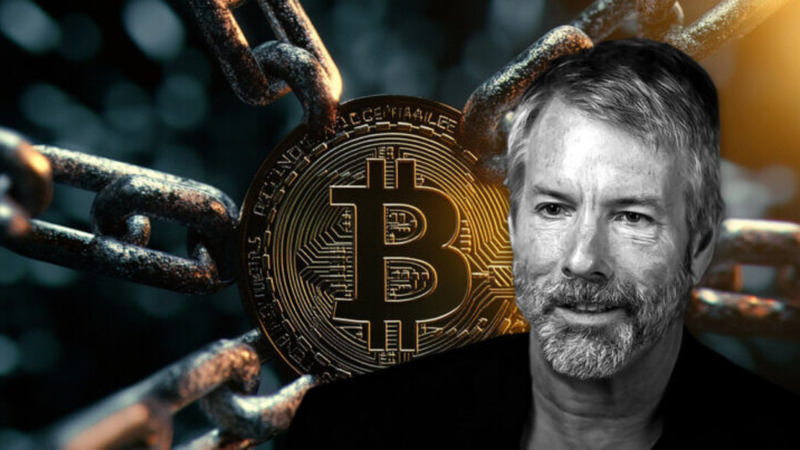
Michael Saylor, co-founder and Executive Chairman of Microstrategy, has drawn sharp criticism from the cryptocurrency community following his remarks targeting the "paranoid crypto-anarchists" who advocate for the self-custody of Bitcoin. Saylor’s statements, which downplayed the risks of potential government seizure of bitcoin held by major institutions, have ignited a heated debate within the digital asset space.
Saylor’s Dismissal of Seizure Fears
During a recent interview, Saylor dismissed concerns about the possibility of governments seizing bitcoin held on centralized platforms, a scenario frequently raised by proponents of self-custody. He argued that these fears are primarily propagated by crypto-anarchists who, he claimed, could themselves provoke such an event by refusing to comply with regulatory frameworks.
Saylor emphasized that entities such as Blackrock, Fidelity, and JPMorgan—institutions deeply embedded within regulatory systems—present a lower risk for seizure because lawmakers and politicians are financially invested in these platforms. His comments suggested that holding Bitcoin with these firms is a safer alternative to self-custody.
Historical Comparisons and Controversial Stance
When asked about the likelihood of a bitcoin seizure akin to the U.S. government's 1933 gold confiscation, Saylor dismissed such comparisons as unrealistic. He attributed these fears to what he described as a "myth" and "trope," commonly perpetuated by anarchistic elements within the crypto community.
“According to Saylor, "people say that, but it is largely paranoid crypto-anarchists that say it," raising doubts about the possibility of such an event.
Crypto Community Reacts Swiftly
Saylor's comments immediately provoked criticism from a number of well-known cryptocurrency figures. Max Keiser, a well-known Bitcoin advocate, took to social media to mock Saylor, suggesting he was out of touch with the broader crypto movement. Keiser’s cutting commentary likened Saylor to "the type of guy who thinks the stripper really likes him" and questioned his understanding of the core values driving the Bitcoin community.
Similarly, podcaster Vlad Costea criticized Saylor for alienating the very group that had supported his rise in the crypto space. Costea pointed out that Saylor’s earlier stances aligned closely with the so-called "paranoid" individuals he now ridicules. “Costea added, "What he said three or four years ago is not important; he was just manipulating strings to become more prominent than any other voice in bitcoin."
Industry Repercussions
The debate over self-custody has gained traction, with Ray Youssef, CEO of Africa-focused P2P platform Noones, joining the fray. He linked Saylor’s comments to what he views as the current state of Bitcoin, remarking, “We were all warned but we’re too smug and busy pooping on Roger Ver to notice that Bitcoin got p0wn3ed.”
Youssef’s comments reflect growing concerns about the centralization of bitcoin custody and the potential consequences for users who rely on large, regulated platforms.
A Pragmatic Shift in Saylor’s Perspective
While many within the crypto community were taken aback by Saylor’s shift in perspective, some industry observers argue that his position is understandable. As an institutional investor, Saylor operates within a framework of regulatory compliance and governance. His recent statements, while controversial, may reflect the realities of navigating the complex regulatory environment that large-scale investors face.
For Saylor, the priority appears to be ensuring the safety and legitimacy of institutional holdings, even if this puts him at odds with the original Bitcoin community that champions decentralization and self-custody.
Comments